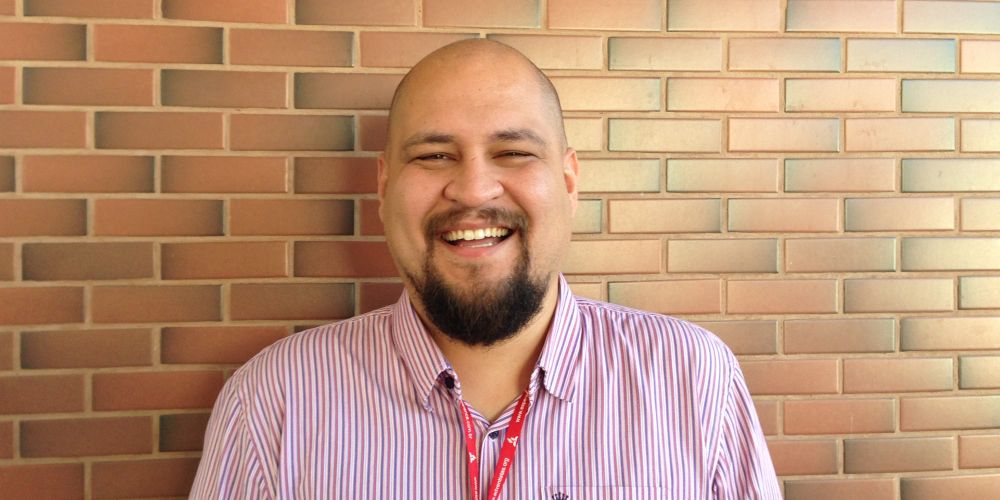
Editor's note: This is the second in a series by news editor Andrew McChesney about how Seventh-day Adventists in South America are using technology to spread the gospel.
Diego Barreto, a young Brazilian pastor with a smooth-shaven head and easy smile, found his telephone conversations with a fellow pastor so interesting that he decided to record one as a podcast.
Only 15 friends downloaded the initial podcast in 2013. But the online audience surged to 6,000 by year end. Then 10,000.
Today, an average of 100,000 people listen to “Hiperlinkados” (Hyperlinked), which has morphed into a weekly television program on Novo Tempo, the Brazilian channel of the Seventh-day Adventist Church’s Hope Channel network.
What captured people’s interest?
“We took the deep things of theology that are not normally discussed because of their difficulty and turned them into a conversation,” Barreto explained. “This is the main thing that attracts so many people. We are used to seeing the gospel message clothed in formality, but when you take that out, you touch people’s hearts very quickly.”
Adventist believers in South America are known within the world church for their use of the latest technology to spread the gospel. But Barreto, 33, has found a niche that has gained a significant following.
A typical conversation between Barreto and his co-host, José Flores Jr., might tackle the real purpose of prophecy, a key plank in the Adventist Church’s end-time teachings.
“Many people think prophecy is seeing the future, a revelation of the future,” Barreto said, speaking in fluent English on the sidelines of a GAiN conference of communications specialists from across the Adventist Church’s South American Division in Sao Paulo, Brazil, last weekend.
“But this is not the real purpose of prophecy,” he said. “Prophecy is a message from God to change you right now, and when the future happens you will see that God was behind everything. That is the whole objective of prophecy.”
Assuming the conversation tone that he uses on his television program, he continued: “If you see prophecy as a crystal ball, then you are going to make mistakes because you are going to assume things and things will not happen the way that you expect. For example, if God were to show to Moses an iPad, how could Moses explain it? He didn’t have the words in his language to explain an iPad. So the future can’t really be shown to people in the present. God is not here to satisfy our curiosity. He is just trying to change us right now.”
Barreto, a pastor in the church’s South Sao Paulo Conference, never imagined that his phone conversations would reach an international Portuguese-speaking audience when he started recording the podcasts. He said his main concern was that Adventist theology seemed far removed from what many people believed in his church’s pews.
“We wanted to end this gap,” he said. “That’s why we decided to bring our telephone conversations to the Internet.”
Interest surged as Barreto delved into topics of practical Christianity. By the end of the year, each podcast was averaging 6,000 downloads without any kind of advertising or other publicity.
“We let it grow organically on the Internet,” Barreto said.
He said he found that people value a friendly, nonthreatening approach to serious biblical matters through regular conversation.
“It all happens within a conversation,” he said. “It’s more intimate. There is no formality. We don’t speak like pastors or use a pastor’s voice. We talk, we laugh, we cry if we need to cry. But it’s a natural conversation about things people don’t normally talk about in church.”
The conversation may be natural, Barreto carefully researches each topic in advance. It was through this research that he reached his conclusions on prophecy.
“Many think that something has to happen in the future so they experience a revival. Many in the church think that prophecy is to tell about the future,” he said. “But prophecy is to change us right now so we are already ready when the future happens.”
Barreto still releases a podcast every other month.
“We have introduced a lot of cultural things into our way of religion that are not at the core of the Adventist Church’s teachings,” he said. “Discussing these things helps us become closer to the real message of the Adventist Church and to solve the practical problems that we have.”
Read also: